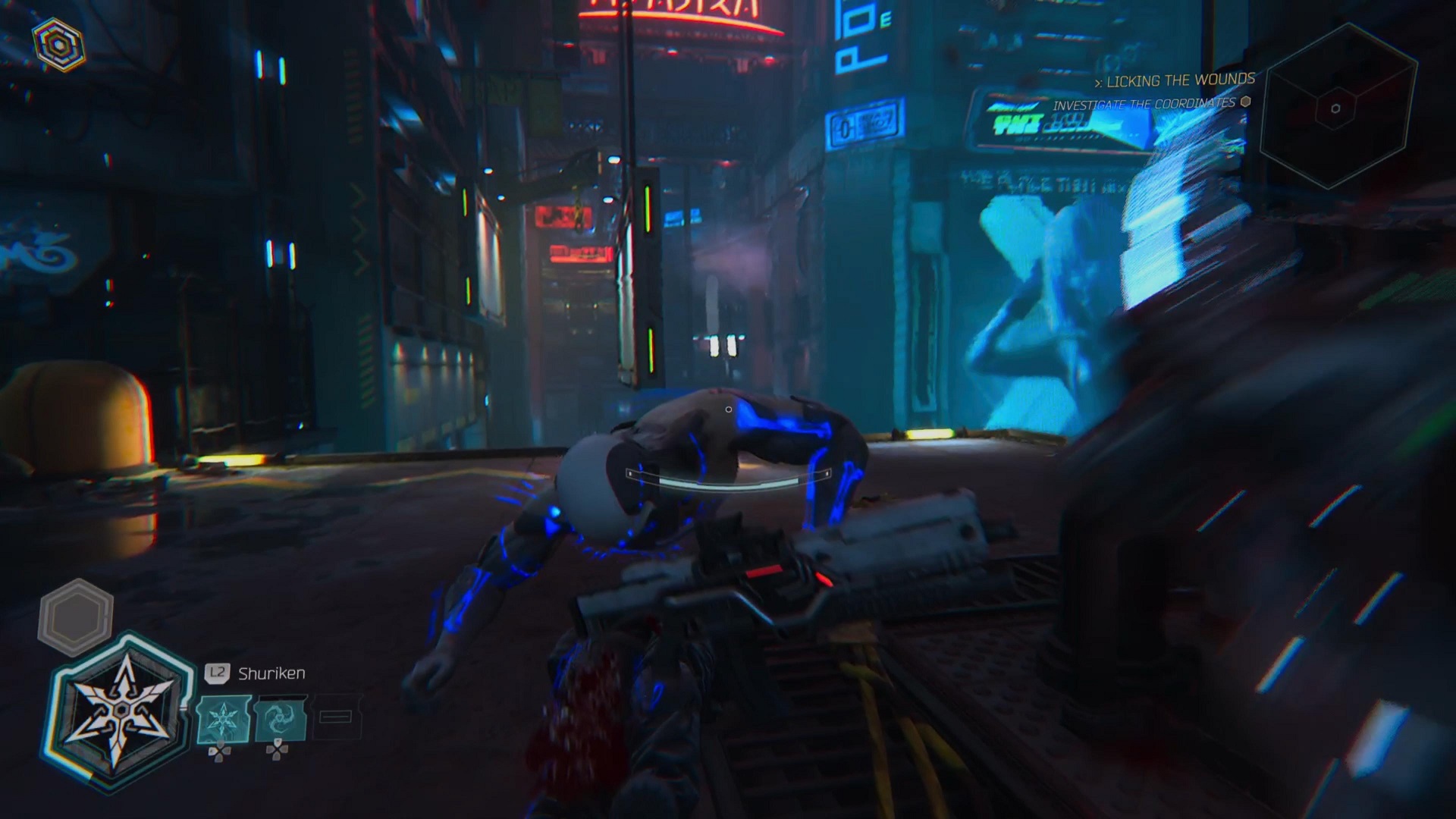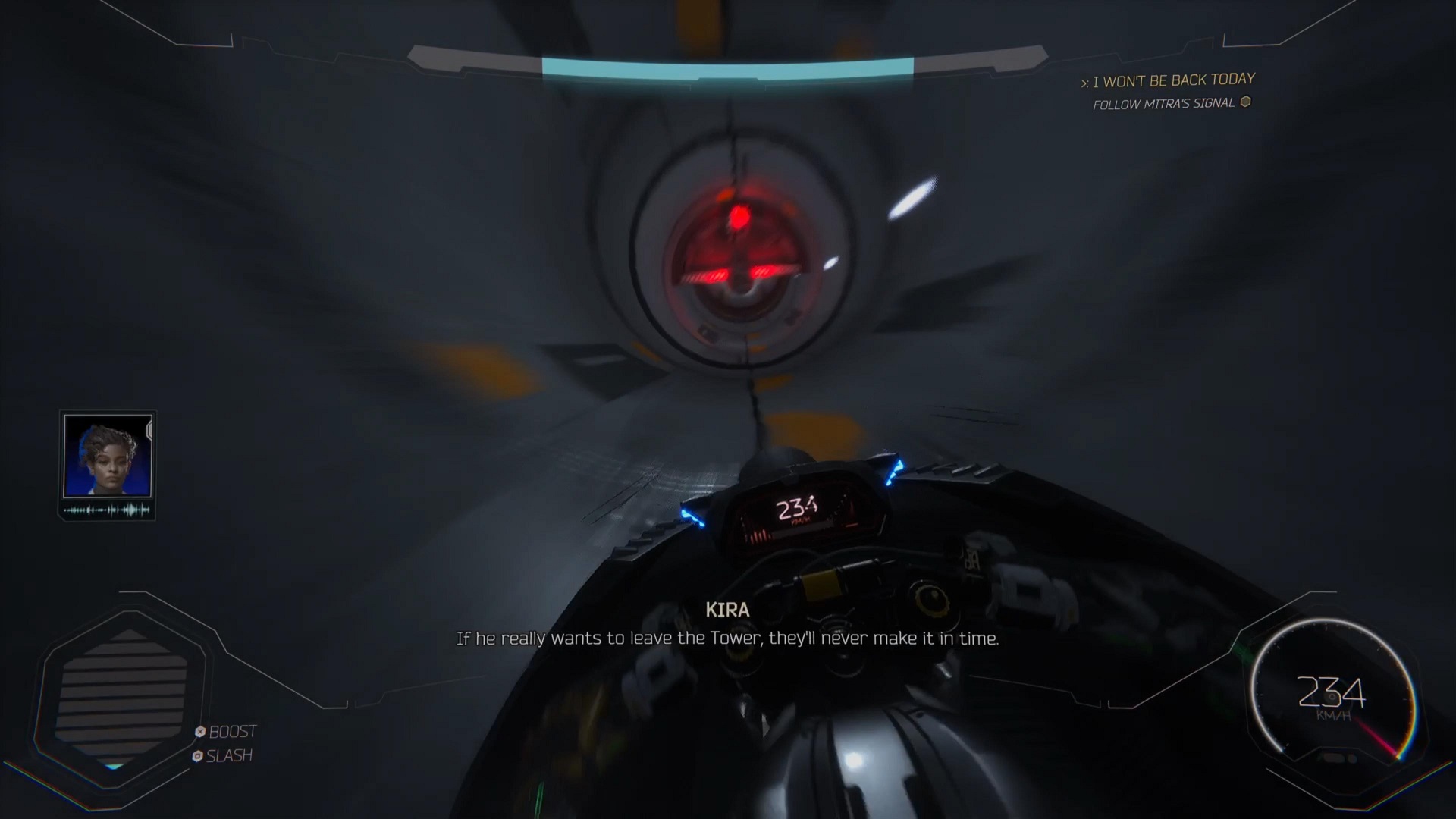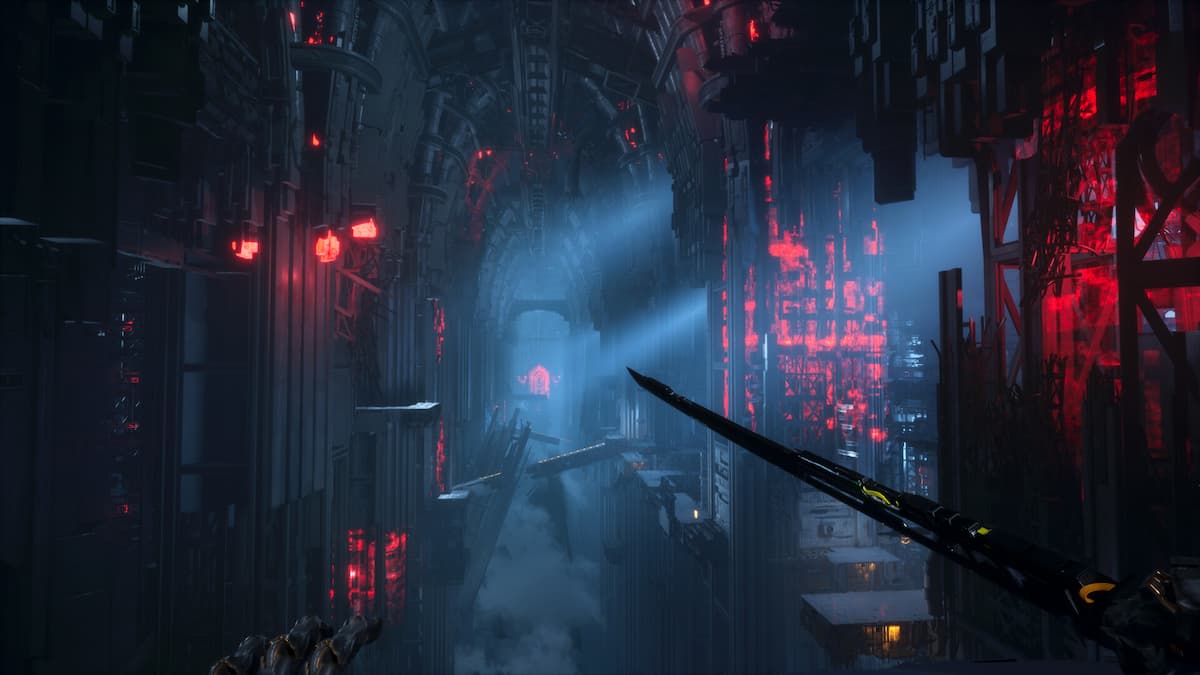Despite missing it at launch in 2020, I’m in the “Ghostrunner rocks” camp. It knew exactly what it wanted to be and executed its premise brilliantly. I wasn’t sure what to make of Ghostrunner 2 but was excited to play the demo. As much as I enjoyed the first game, I bought it on a deep sale and considered giving the sequel a similar treatment. I hadn’t watched any trailers, and not for a lack of interest. There were too many other games to keep track of, and Ghostrunner 2 slipped through the cracks.
That is until now because the demo might have won me over. It was only one level, but it made a hell of an impression. If Ghostrunner 2 wasn’t on my radar before, I’m keeping an eye on it now.

Slicing and dicing while hopping and dropping
The demo’s first half will feel familiar to anyone who played the first game. It begins with the titular Ghostrunner Jack dramatically stepping onto the scene, killing a few goons before giving control to the player. Jack’s got a shuriken now, a refreshing addition to his arsenal, and it works as a viable ranged option. Still, nothing beats dashing up to a guy and slicing him in half before he can even react.
On my part, there was a bit of an adjustment to Ghostrunner 2. I played the first game with a keyboard and mouse and figured to try the demo with a controller. The game still felt buttery smooth, but I died a few more times than I’d like to admit as I acclimated.
Once I was fully adjusted to the new controls, Ghostrunner 2 worked as an improved version of the first game. From the get-go, players have more options in moment-to-moment gameplay, and the first level trusted players to multitask combat and movement.
Like the first game, story beats were delivered largely in the middle of the level over calls Jack has with the cast. Narrative elements were never Ghostrunner‘s core focus, and this delivery helps keep momentum in both games. It’s still nice seeing returning characters like Zoe still alive and kicking after the first game.
Where I noticed Ghostunner 2 deviates somewhat from the first game is in its level design. The demo’s level was a little more open at points, giving players a couple of ways to approach a section. Ghostrunner and stealth seem oxymoronic, but I finished an encounter without most enemies noticing me.
It was still all familiar territory. Ghostrunner 2 didn’t truly sell me until I reached the motorcycle.

Going vroom in a cyberpunk hellscape
I wasn’t aware there would be motorcycle sections in Ghostrunner 2. Despite even the website stating a motorcycle would be in the game, I was nonetheless oblivious to this addition. Suspicions arose when I saw it on the main menu screen, but then I got to drive it, and it was awesome.
Well, it’s more the idea that’s awesome so far. Breaking up the demo’s level with an on-foot and motorcycle section was a great move on One More Level’s part because it shows off the core features within a condensed timeframe.
The sequence is simple, with only environmental hazards in Jack’s way. Just like the on-foot sections, controls on the bike are simple. There’s a button to accelerate, one to boost, and one to cut with the sword.
Where the sequence excels is in its sense of speed. This thing goes upwards of 250mph, and it feels that way. There was hardly a moment to breathe as the environment zoomed past and I kept my eyes out for obstacles.
My favorite part of the demo was riding alongside walls on the bike! It’s like the developers tried to implement something more awesome than wall-running and actually did it. The demo ended with Jack riding his bike out of Dharma and greeting the outside world. Seeing beyond the tower’s interior is a huge moment because the first game’s setting was entirely inside.
Everything was over in less than 20 minutes and I wanted more. The focus here was clearly not just on improving upon the first game but adding variety to better pace the entire experience. I’m just hoping the full package sticks the landing when it launches on October 26.








